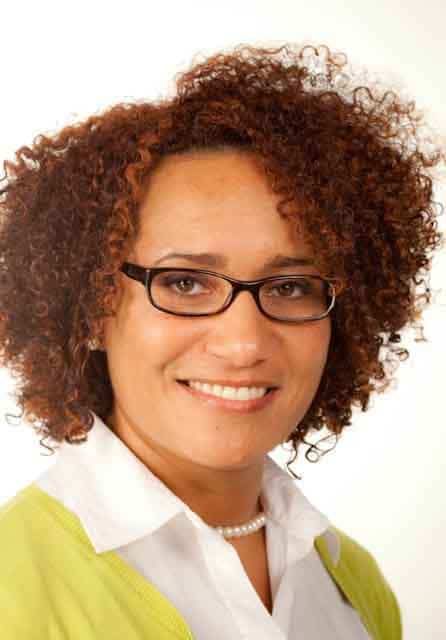A team of Howard University researchers wants to know how disinformation impacts Black people
By Matt Field | December 3, 2020
 Examples of Russian social media disinformation featuring Black people made available by the US House of Representatives. Credit: US House of Representatives Permanent Select Committee on Intelligence.
Examples of Russian social media disinformation featuring Black people made available by the US House of Representatives. Credit: US House of Representatives Permanent Select Committee on Intelligence.
At first glance, the record of Russia’s disinformation attack on the 2016 presidential election in the United States appears to be a confusing tangle. A wide array of fake Americans on social media pushed wildly divergent messages. Fake Black activists decried police brutality. A phony Christian compared Hillary Clinton to Satan. Fake Republicans talked up Donald Trump. Fake accounts told Bernie Sanders’s progressive supporters to vote Republican in the general election.
Many experts have now settled on some version of the theory that overall, the cacophony of voices represented Russia’s attempt to salt the pre-existing wounds of a politically and otherwise divided country to benefit Donald Trump and hurt his opponents. In this broad effort, Russian operatives targeted Black Americans more than any other demographic group, according to the US Senate Intelligence Committee.
In 2020, disinformation purveyors were again targeting potential Black voters. That’s probably because shifts in Black turnout in a few key areas in states like Michigan or Wisconsin can have a big impact. While both 2016 Democratic nominee Hillary Clinton and President-elect Joe Biden won a similarly large share of the Black vote, Biden won more votes in Midwestern cities with large Black populations, including Milwaukee and Detroit, helping him notch an Electoral College victory.
The power of the Black vote is a political reality lost neither on presidential campaigns nor those behind disinformation campaigns. Seemingly small changes in Black turnout here or there can theoretically change who ends up in the White House.
To better understand the information environment Black people are exposed to, Howard University political science professor Keesha Middlemass and a team of researchers at the school are surveying Black communities in Washington, DC. Disinformation is now a campaign strategy, she said, and she and the Howard University team hope to unpack how Black Washingtonians are exposed to it and what they do with the information they receive. The team will also look at misinformation about COVID-19 or vaccines, Middlemass said.
I talked with Middlemass about her research and her thoughts on what kinds of disinformation was being targeted at Black people.
Editor’s note: This interview has been edited for length and clarity.

Matt Field: What are you trying to find out through your surveys?
Keesha Middlemass: What we’re really interested in and our questions focused on is not just the use of social media, but how individuals process the information they get on social media. We know that the exchange of information, particularly via social media, is a two-way street. You can read it and digest it, but then you can also retweet it, share it, post it on someone else’s Facebook. And it’s that idea where you’ve got these ongoing conversations.
We want to know how people then use the information they receive. Where do they see the information? And what do they do if they come across these false narratives? Do they fact-check? Do they fact-check it immediately on Google, or do they talk to their friends about it? And then we want to know, the information they receive via social media … Did they use that information to then talk about politics? Did they use that information to share information about early voting and how to cast an absentee ballot …?
MF: How many people do you hope to get your surveys out to?
KM: Well, initially, it was just a small sample, 500, and then we expect to replicate that in a post-election survey, so 1,000 people. Our goal is to then have focus groups and one-on-one interviews with different people in different age groups.
MF: You’ll have results later in the year, but do you have findings you can share?
KM: The really preliminary data is that we know Black individuals are targeted because they are an identifiable Democratic constituency. And we know also, there’s this idea of Black Twitter or Black social media sources that, you know, other people read, but we know that you can target very loyal Democratic voters to a very specific way, just as Republicans targeted voters in Miami with Spanish targeted ads.
There are these segmented media populations. We know that there are these segmented media populations where a Spanish message in Miami is not going to have the same weight as a Spanish message in Houston. The message can’t be the same, because those Latino populations are different. So we’re trying to really ascertain: Where do Black people get their media? And what kind of messages are they getting?
MF: What kinds of disinformation have Black people been exposed to this election season, anecdotally?
KM: There was the idea of targeting Black voters saying, you know, if you fill out your mail-in ballot, and you put all of your legal information, the government will use that information to then get a warrant out for you. Or they will use that information to get you on back child support. And it’s not like Black people are the only ones that don’t pay child support. But it is a narrative about white people thinking about the criminality of Black people. And using that narrative, of “Oh, if you give all your government information, the legal community, law enforcement will come after you.” And you don’t really even have to think about it, like, “What did I do?” It’s like, “Well, darn, maybe they’ll just come and harass me, or they’ll show up to intimidate me on some crap that I haven’t done.” It’s feeding into that narrative of law enforcement is dangerous for black people, don’t give the government your information.
Together, we make the world safer.
The Bulletin elevates expert voices above the noise. But as an independent nonprofit organization, our operations depend on the support of readers like you. Help us continue to deliver quality journalism that holds leaders accountable. Your support of our work at any level is important. In return, we promise our coverage will be understandable, influential, vigilant, solution-oriented, and fair-minded. Together we can make a difference.
Keywords: 2016 election, 2020 election, Black vote, Disinformation, Internet Research Agency, Russia
Topics: Disruptive Technologies















